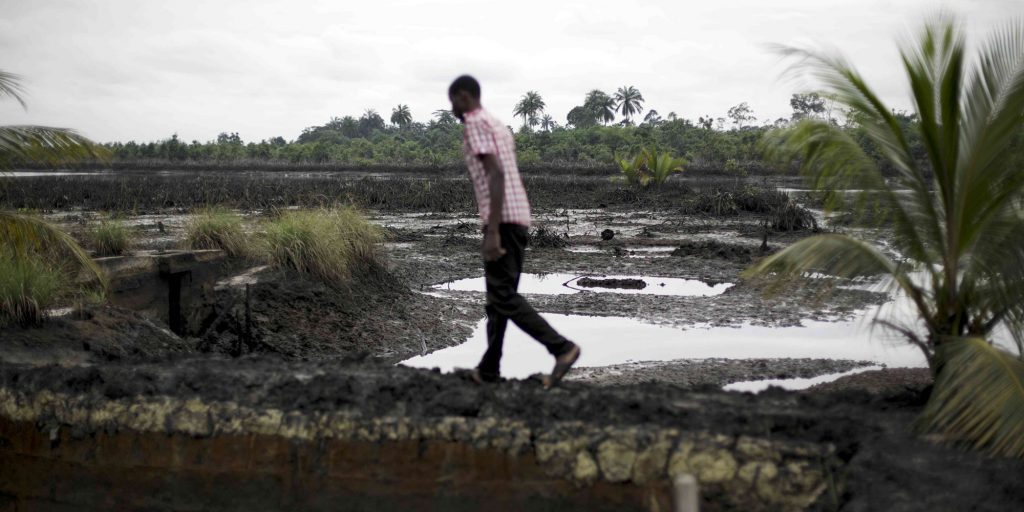Shell and the Nigerian government must finally address the devastating oil pollution in the Niger Delta, according to Friends of the Earth Nigeria today. A broad coalition of civil society organisations cautiously welcomed an announcement from the government today that it would launch a programme to act on recommendations from the United Nations Environmental Programme (UNEP) to clean up pollution in the Ogoniland region linked to the oil industry.
The people of Ogoniland have lived for decades with pollution linked to the oil and gas industry, and along with the people of the wider Niger Delta urgently need a resolution to the ongoing impacts on their access to water, health, livelihoods and the environment.
The Nigerian president Muhammadu Buhari reiterated his promise to implement recommendations from a 2011 UNEP report, and said he expected to see visible improvements to the environmental conditions in the region.
The landmark report from UNEP in 2011 exposed how Shell had systematically failed to clean up oil spills in the Niger Delta, and large-scale, continued contamination of the water and soil in Ogoniland. Today, spill sites identified by the report remain heavily contaminated, despite superficial clean-up operations. In one case, UNEP found that a community drinking well was polluted with benzene, a cancer causing substance, at levels 900 times above the World Health Organisation guideline.
For the clean-up programme to be effective, Shell must match the government’s commitment to tackle pollution by properly cleaning up previous oil spills, and by overhauling its practices for remediating future spills in line with UN recommendations.
The government must take immediate action to provide alternative drinking water for communities who live with toxic water supplies. A comprehensive clean-up of Ogoniland will require financial contributions from those who have benefited from the oil industry in the region until the clean-up is complete, that go beyond the initial fund of USD$1 billion, and the process must fully include those communities involved.






